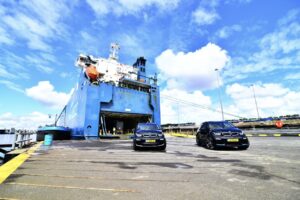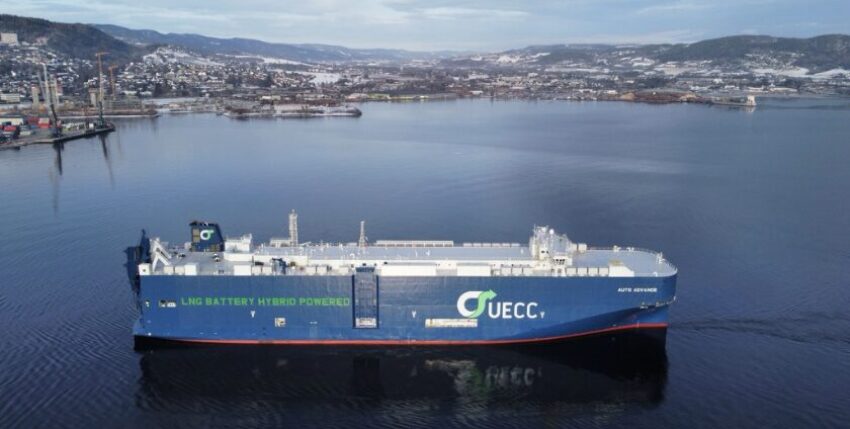United European Carriers (UECC)an innovative Norwegian maritime transport company, has been investing in alternative fuels for years and more than doubled the use of biofuels in its fleet of ships last year. The shipping company's goal is to reduce emissions by at least 45 per cent by 2030.
After all, the low-emission concepts save port fees and, as a car transporter, it would be difficult to ship e-cars across Europe without asking whether ship propulsion with carbon-based fuels is still in keeping with the times, according to UECC.

For the conversion and renewal of the fleet, the company was awarded the 2019 the Bremen "Green Shipping Award". The innovative installation of battery hybrid technology in combination with a dual-fuel solution enabled the use of ISCC-certified, sustainable biofuel (B100). Sales of this fuel increased from 6500 tonnes in 2022 to 14,000 tonnes in 2023. International Sustainability & Carbon Certification (ISCC) is a global certification system for traceability along the entire value chain.
This means that one of Europe's leading companies for sustainable short sea shipping has made considerable progress in decarbonising its transport fleet for cars and trucks (PCTC - pure car and truck carriers). The new construction of five LNG-powered ships and the increased use of biofuels is also paying off for customers in view of new environmental regulations, according to the company. Manager for Energy and Sustainability at UECC, as the use of biofuels will reduce the costs associated with the EU Emissions Trading System (EU ETS).
With its 14 ships, nine owned and five time-chartered, the company has achieved a total emissions reduction of around 60,000 tonnes in 2023, of which an estimated 40,000 tonnes are attributable to the use of biofuels and the rest to LNG. According to UECC, this represents an increase of almost 250 1TP3 tonnes compared to 2022 and the company is well on the way to exceeding its target of reducing emissions by at least 45 1TP3 tonnes by 2030. The UECC is therefore less than 10 1TP3 tonnes away from the EU target.
Marineforum.Online has already reported several times on the shipping company's innovative approaches. See the report, among others: "United European Carriers (UECC) drives CNSL forward" from 28 March 2024
With an ambitious climate law as part of the European Green Deal, Europe's roadmap to climate neutrality, the EU's emissions reduction target for 2030 will be raised from 40 per cent to at least 55 per cent ("Fit for 55 by 2030") and climate neutrality by 2050 will be made legally binding.
The successful use of alternative fuels, underpinned by various studies, shows that the shipping industry should consistently follow this path. The combination of alternative fuels with other energy efficiency measures, such as regular cleaning of the ship's hull and electrification with green shore power, which can still be expanded, can further advance decarbonisation.
UECC is therefore on the right track, as are other stakeholders with their various contributions to achieving this goal. of the net zero target in the EU.
If you would like to find out more about this complex topic, search for keywords such as "alternative fuels", "scrubber", "LNG", "Mukran", "e-fuels", "HVO" etc. in our mfo search mask. In mostly short articles, we present facts as well as contradictory information.
kdk
Source: UECC







